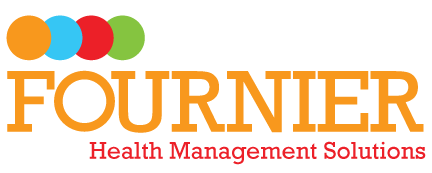Prevention is the KEY to Cost Containment
With WSIB’s New Rate Framework Modernization starting January 1, 2020, it is time for employers to decrease their financial impact of work related claims and allow for significant cost containment through prevention utilizing a variety of strategies such as:
- advanced WSIB training
- onsite occupational health care measures
- recruitment or hiring of health care professionals
- establishing preferred vendor contracts
- implementation of Health & Wellness programs
- development of an innovative Mental Health program
Collectively, these measures will provide a strong approach to prevention and result in reduced costs to the organization. When evaluated, these measures will also prove to be beneficial to reduce absenteeism and costs for self-insured disability programs, short & long term disability plans through 3rd party insurers and escalating attendance management issues.
1. Advanced WSIB Claims Management Training and Coaching
It is crucial to increase the skills of your onsite claims manager, health & safety or Human Resources team to minimize WSIB claims impact to your company. Assertive claims management through thorough policy knowledge and innovative problem solving is a great start towards cost containment. Coaching your claims team to success with readily tracked ROI (Return on Investment) and KPIs (Key Performance Indicators) is needed.
See our Advanced WSIB claims management training program here on this link: https://www.fournierhealthmanagementsolutions.com/wsib-training/
2. Onsite Occupational Health Department Development
With the movement away from NEER where increasing costs were primarily attributed to loss of earnings, the new Rate Framework includes BOTH health care AND loss of earnings costs in the financial calculation directed to each organization. Due to this comprehensive attention to ALL of the costs within each claim, it is time to consider rebuilding your onsite Occupational Health services. Optimum Occupational Health Department strategies for your organization is critical in the management of health care following a workplace injury or illness.
See our blog on Occupational Health Services: https://www.fournierhealthmanagementsolutions.com/workplace-ghosts/
3. Recruiting Professionals for Contract or Hire
Today’s possibilities for health care professionals in the workplace goes beyond an Occupational Health Nurse and Physician. Consider a comprehensive team for your organization that could include:
- Massage therapist
- Physiotherapist
- Occupational Therapist
- Kinesiologist proficient in exercise therapy and/or Ergonomics
- Chiropractor
- Naturopath or Homeopath
- Others
We offer recruiting services that complements your organization and provides you with the best professionals to meet your strategic needs to reduce claims and costs.
4. Establish Preferred Vendor Contracts
As an alternative to contracting or hiring a professional team, consider establishing a Preferred Vendor Contract with an already established treatment provider. Many of the clinics today offer an array of services under one roof. Negotiating services with standard operational guidelines will ensure you and your employees receive the treatment, pricing and process you need to minimize costs and maximize access to health care services.
5. Health & Wellness Programs
If you’ve been thinking there’s little return on investment by implementing Health & Wellness programs onsite, THINK AGAIN. These H & W programs are a basic necessity to prevent claims from happening and provide education and awareness to the employees on how to stay healthy and avoid injuries at home and at work. These programs go well beyond Flu shots and Stop Smoking programs that have been implemented at most workplaces in the past 10-20 years.
See our Health & Workplace Wellness Page: https://www.fournierhealthmanagementsolutions.com/workplace-wellness/
6. Mental Health Program
Much has been discussed regarding mental health in the past few years in the news and social media. Here at Fournier Health, mental health management and related initiatives have been a service we offered since our beginnings in 1999. It is imperative that organizations address these psychological claims by implementing a Mental Health program in the workplace due to:
- Increase in global attention to workplace mental wellness
- The lack of management of these diagnoses in the workplace
- And also just as important, the new policies at WSIB regarding mental health claims it is imperative that organizations address these claims by implementing a Mental Health Program in the workplace.
See our Mental Health page here: https://www.fournierhealthmanagementsolutions.com/mental-health/
Summary
These are only a few of our strategies to prevent and manage workplace injuries and illness. We can assure you however, that prevention is the KEY to managing workplace absenteeism, whether this be WSIB or non-occupational related. The time is here to strategize first as to what your organization needs, and second, to implement your strategies, for the benefit of your employees and your company. We can help you in the above services and more. Feel free to reach out and give us a call: 519.803.3025 or 613.803.6390.

Lucie M.H. Fournier RN, COHN(C), BA (Psych)
Founder/Workplace Health Strategist
With over 30 years of experience in disability management, and a return on investment on average of 1:7, Fournier disAbility & Health provides customized and results oriented services in Absenteeism Management including Attendance, Sick Time/Short, Long Term Disability, and WSIB claims for employers across Ontario.
Expertise in 5 distinct niches of disAbility management include:
1. Complex claims management resolution
2. Mental health claim return to work & accommodations
3. Advanced level training for internal claims manager to make a significant impact on the health of the employee and wealth of the organization
4. Transitional Leadership when moving to & from a 3rd party disAbility Management company
5. Sensitive claims & disAbility management of professional staff, such as HR, health team, and/or executives such as supervisors, managers, directors






Leave A Comment